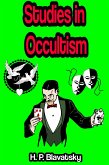In Praise of Folly by Desiderius Erasmus In Praise of Folly, also translated as The Praise of Folly (Latin: Stultitiae Laus or Moriae Encomium), is an essay written in Latin in 1509 by Desiderius Erasmus of Rotterdam and first printed in June 1511. Inspired by previous works of the Italian humanist Faustino Perisauli [it] De Triumpho Stultitiae, it is a satirical attack on superstitions, other traditions of European society and on the Western Church.
Erasmus revised and extended his work, which was originally written in the space of a week while sojourning with Sir Thomas More at More's house in Bucklersbury in the City of London.
The title Moriae Encomium had a punning second meaning as In Praise of More. In Praise of Folly is considered one of the most notable works of the Renaissance and played an important role in the beginnings of the Protestant Reformation.
In Praise of Folly begins with a satirical learned encomium, in which Folly praises herself, in the manner of the Greek satirist Lucian (2nd century AD), whose work Erasmus and Sir Thomas More had recently translated into Latin; it then takes a darker tone in a series of orations, as Folly praises self-deception and madness and moves to a satirical examination of pious but superstitious abuses of Catholic doctrine and corrupt practices in parts of the Roman Catholic Church—to which Erasmus was ever faithful—and the folly of pedants.
Erasmus had recently returned disappointed from Rome, where he had turned down offers of advancement in the curia, and Folly increasingly takes on Erasmus' own chastising voice. The essay ends with a straightforward statement of Christian ideal: "No Man is wise at all Times, or is without his blind Side."
Erasmus revised and extended his work, which was originally written in the space of a week while sojourning with Sir Thomas More at More's house in Bucklersbury in the City of London.
The title Moriae Encomium had a punning second meaning as In Praise of More. In Praise of Folly is considered one of the most notable works of the Renaissance and played an important role in the beginnings of the Protestant Reformation.
In Praise of Folly begins with a satirical learned encomium, in which Folly praises herself, in the manner of the Greek satirist Lucian (2nd century AD), whose work Erasmus and Sir Thomas More had recently translated into Latin; it then takes a darker tone in a series of orations, as Folly praises self-deception and madness and moves to a satirical examination of pious but superstitious abuses of Catholic doctrine and corrupt practices in parts of the Roman Catholic Church—to which Erasmus was ever faithful—and the folly of pedants.
Erasmus had recently returned disappointed from Rome, where he had turned down offers of advancement in the curia, and Folly increasingly takes on Erasmus' own chastising voice. The essay ends with a straightforward statement of Christian ideal: "No Man is wise at all Times, or is without his blind Side."









